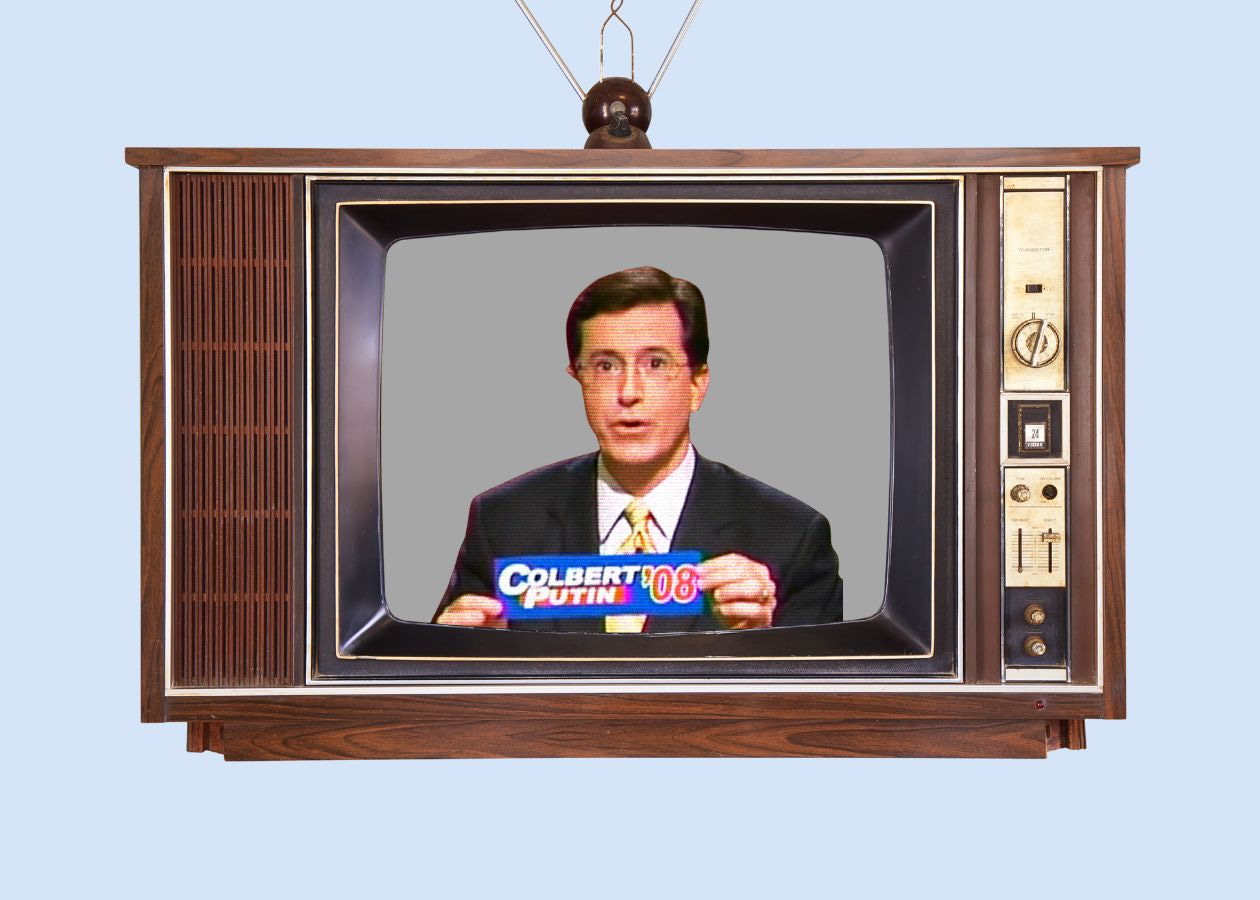Colbert Canceled: Press Freedom Will Go Out With a Pen Stroke, Not a Bang
Americans have difficulty seeing authoritarianism if it isn’t in their faces
Yesterday, Stephen Colbert announced that CBS would be canceling his Late Show at the end of its current run next May. His employers apparently cited financial reasons for the decision.
While no one at the network will explicitly say so, the specter of Donald Trump looms large over the whole affair. Only days earlier, Colbert had criticized CBS-parent company Paramount for its $16 million settlement with the president, who sued over allegedly unfair editing of a 60 Minutes interview with Kamala Harris last fall. Give me a break. Paramount even called the lawsuit “meritless.”
Because America is a democracy, this kind of politicized interference with the media does not, by itself, mean the death of First Amendment freedoms. It is, however, another drop of poison in the well. And canceling the top-rated show in its time slot, with a well-known and well-liked celebrity host, and attributing it to “financial reasons” beggars belief, especially after said host just called out your corrupt bargain. It is about as thin an excuse as calling every defenestration in Moscow an accident.
I spoke with a colleague earlier who compared what’s happening now with Trump and Colbert to Vladimir Putin’s evisceration of Russian television during his first term. It’s not quite like that.
More from The Next Move
In Russia, the death of independent media was much easier to spot. In 2000 Russian police and FSB agents raided the headquarters of NTV, a major broadcaster. In short order, the state had a controlling interest in the station’s ownership. Then, in 2002, Putin had NTV cancel the satirical program Kukly (dolls), which used elaborate puppets to lampoon Russia’s most powerful men.
Kukly, like The Next Move, engaged in equal-opportunity criticism, going after politicians of all stripes, but Putin did not like its unflattering portrayal of him so he shut it down. Putin did so by decree and the puppet show was gone essentially overnight. The dictator swapped out the “bad” oligarchs in charge of the media for his handpicked “good” oligarchs.
Russia had no democratic immune system, so the authoritarian virus took hold immediately. America, on the other hand, does have defenses. Colbert likely still has an agreement with CBS, and he will stay on TV until that agreement concludes. The president can’t yank a show off the air by diktat, and CBS won’t because this country’s mature, complex legal system still protects people from breaches of contract.
But Trump can change norms. And he is. He can apply political pressure to media outlets that make them more pliant. He can burden them with frivolous lawsuits, as he did in the case of CBS. Paramount conceded that there was nothing to the suit, but they proceeded with a settlement anyway because they decided that being on this president’s bad side was not worth the headache.
Thus, a new norm is born: If you want to do business in the United States, you must keep the president happy and feed his ego.
Norms are, by definition, not codified. They’re not announced. They’re difficult to encapsulate in a headline. Yet they are powerful; informally setting the terms of what is and isn’t permissible in government and society.
New authoritarian norms stealthily replace old democratic customs. Once entrenched, they can’t be struck down by a court or overridden by legislation. As I observed way back in mid-January 2017, “US institutions are relatively strong, but they are also totally unprepared and often based on tradition and the honor system.”
So independent media won’t die overnight in the US. Dissenting voices like Colbert will ride out the terms of their employment, going out with a pen stroke rather than a bang. The prognosis for press freedom in America will be measured in months or even years. This descent is not a straight line. Colbert could even be picked up by another network. But it’s clear that companies and individuals will be thinking twice about saying or doing something to cross the administration.
That drawn out timeline makes the malaise harder to identify: Americans have difficulty seeing authoritarianism without a Reichstag fire or Eighteenth Brumaire. But it also means that you still have time to stop the demagogic disease. Don’t waste it.
Full disclosure, I had a brief appearance on Colbert’s show in 2007—though we mostly talked chess, not politics!
More from The Next Move
The New York Times Runs Shameless Propaganda on Russia and Ukraine
The Times criticizes Ukraine’s legitimate self-defense against Russia while Vladimir Putin’s troops escort their reporter.
Epstein Files: What Trump’s Opponents Need to Know
Donald Trump and his allies either fed a baseless conspiracy theory about Jeffrey Epstein. Or they’re defending a global pedophile ring. Any way you slice it, the president doesn’t look good.
This Political Movement Spends Billions—And Keeps Losing
The climate movement has important goals, but it is significantly more partisan than the society it serves.








It's in their face; The comedian Michael Ian Black wrote, “Congrats to Stephen Colbert for never bending the knee.”
💯”Americans have difficulty seeing authoritarianism without a Reichstag fire or Eighteenth Brumaire. “